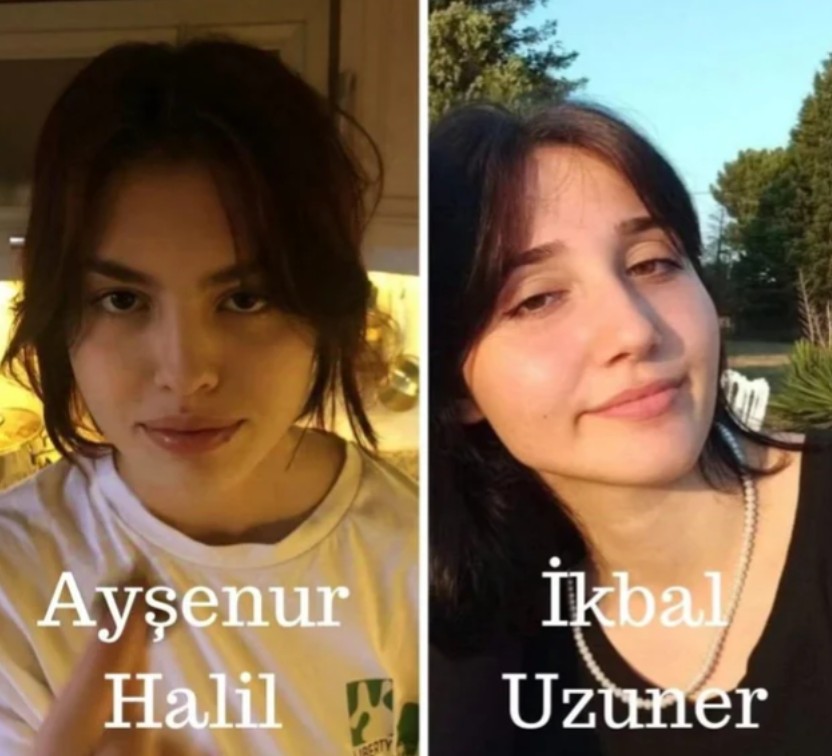Ikbal Uzuner Video and The Case of Semih Çelik
On October 4, 2024, Istanbul became the scene of a harrowing crime that shocked the entire country. Semih Çelik, a 19-year-old man, killed two young women İkbal Uzuner and Ayşenur Halil before taking his own life by leaping from the historic Edirnekapı Walls. The crime was brutal and tragic, and it stirred national debate over mental health, youth alienation, and how warning signs can go unaddressed.

Months later, the Istanbul Chief Public Prosecutor’s Office announced a decision of non-prosecution, closing the investigation on the grounds that Çelik had acted alone and without ideological influence. For the families of the victims, however, the pain remains, and for the public, the case continues to raise troubling questions.
Contents
The Official Investigation and Video
The prosecutor’s office concluded that there was no evidence linking Semih Çelik to satanism or any form of ideological group that may have directed his actions. Furthermore, investigators found no third-party involvement in the murders.
Uncensored full video and photos of the Ikbal Uzuner case
As a result, the file was closed, and no further prosecution followed. Legally, this brought the case to an end. Yet socially and emotionally, the closure left many unsatisfied. Families wondered whether authorities could have intervened earlier, given Semih’s long history of psychological distress. Critics suggested that the tragedy reflected systemic failures in addressing mental health crises among young people.
Timeline of Events on October 4, 2024
The sequence of crimes unfolded rapidly:
In Eyüpsultan, where Çelik lived, he murdered İkbal Uzuner, his former close friend.
Soon after, he traveled to the Edirnekapı Walls in Fatih, where he killed Ayşenur Halil, his then-girlfriend.
Immediately after the murders, he climbed the city’s ancient walls and jumped to his death.
The sudden chain of events stunned both families and the wider Turkish public, sparking a wave of grief and debate about how such a tragedy could occur.
Testimonies from the Families
The Perspective of Semih’s Father, Adem Çelik
Adem described his son as once being a deeply religious boy. Until age 16, Semih prayed regularly and expressed strong beliefs, sometimes chastising his father for neglecting religious duties. But during high school, his behavior shifted.

Isolation and secrecy: He spent hours on his computer, shutting it quickly whenever someone entered the room.
Loss of direction: He abandoned traditional schooling, claiming that becoming a scientist or “a great man” was meaningless. Eventually, he completed high school externally but showed little ambition.
Mental health struggles: On March 1, 2022, Semih attempted suicide after his girlfriend’s mother accused him of plotting a double suicide with her daughter. He was hospitalized and treated but never fully recovered. He was prescribed psychiatric medication but refused to take it consistently.
After separating from İkbal, he briefly tried working as a butcher. But over time, he quit jobs, sold off gold savings to support himself, and turned to drugs and alcohol. His father noted that Semih frequently expressed nihilistic views, saying, “Life is empty.”
Perhaps most disturbing were the drawings found in his room: images of demons and fragmented bodies, which he dismissed by saying, “You wouldn’t understand. Our way of thinking is different.”
The Perspective of İkbal’s Father, Hasan Uzuner
For İkbal’s family, the tragedy had a longer history. She and Semih had been schoolmates, but their relationship soured as Semih began harassing her. This harassment badly affected İkbal’s mental health, prompting her father to transfer her to another school and arrange therapy.
With time, family support, and the comfort of a pet cat, İkbal’s psychological state improved. For over a year before her death, she had no contact with Semih. Even Semih’s mother reassured the Uzuners that her son had moved on with a new girlfriend and would no longer disturb İkbal.
On the day of her murder, however, her mother’s calls to İkbal’s phone were answered by a man. “Don’t worry, your daughter is in safe hands,” he said. Later, he claimed the phone had fallen near the city walls. When the family went to retrieve it, they discovered that İkbal had been killed.
The Psychological Profile of Semih Çelik
Semih’s psychological journey is a troubling one. As a teenager, he was highly religious, but in later years he rejected faith and embraced nihilism. His suicide attempt in 2022 showed clear instability, yet after his release from hospital, there was no effective long-term follow-up.
His father described a son who became increasingly alienated immersed in the internet, dabbling in drugs, rejecting education, and drawing disturbing images. He often told his family that life was meaningless, a chilling precursor to the violence he later committed.
Though media reports speculated about satanic influences, prosecutors determined there was no evidence of such connections. Instead, the case seems to reflect a collapse of mental health, exacerbated by addiction and despair.
The Victims: İkbal Uzuner and Ayşenur Halil
The two victims of the tragedy each had a different but tragic relationship with Semih.
İkbal Uzuner had once been close to him but was driven away by harassment. She struggled but eventually recovered with family support and therapy, only to have her life cut short.
Ayşenur Halil was his later girlfriend. She visited the Çelik family home regularly, and on the day of the murder, Semih even warned his father not to return because she was there. Her involvement with him ultimately led her into fatal danger.
Both young women represent lives full of promise that were extinguished in moments of senseless violence.
The Video and Room Evidence
After the murders, media outlets revealed disturbing evidence. Ekol TV released a video reportedly filmed a year earlier in which Semih spoke directly to İkbal. In it, he apologized but admitted he once planned to kill her.
In addition, İhlas Haber Ajansı published photos of Semih’s room. While it contained ordinary items like books and toys, a notebook was found with a drawing of a dismembered human body. This evidence suggested violent fantasies had been present long before the murders.
Social and Cultural Reactions
The Istanbul case triggered widespread debate in Turkey.
Mental health concerns: Semih’s previous suicide attempt and psychiatric hospitalization should have signaled a need for ongoing care, yet he slipped through the cracks.
Youth alienation: His withdrawal from school, obsession with the internet, and drug use reflected broader issues of disconnection among young people.
Family and societal pressures: Both families tried, in their own ways, to protect their children, but neither could prevent the devastating outcome.
Though sensationalist claims about satanism dominated headlines, the deeper lesson seemed to be about the dangers of untreated psychological conditions and the gaps in support for vulnerable youth.
The case of Semih Çelik stands as one of the darkest chapters in recent Turkish criminal history. In a single day, two young women İkbal Uzuner and Ayşenur Halil lost their lives, and a troubled 19-year-old ended his own. The prosecutor’s decision to close the case may provide legal closure, but emotionally and socially, the questions remain.
Daily News -Nermin Sulejmanović Video and The Tragic Case
Victoria Tesla Video and Sparked Debate on Social Media
Obdulia Sanchez Video and a Viral Tragedy
Lily Phillips 100 in One Day Challenge Video and Endurance
Gorilla Mask Video and Controversy in Online Culture
Carey Birmingham Video and 10 Years for Fatally
Kendall Love Island Video and Struggles After the Show

